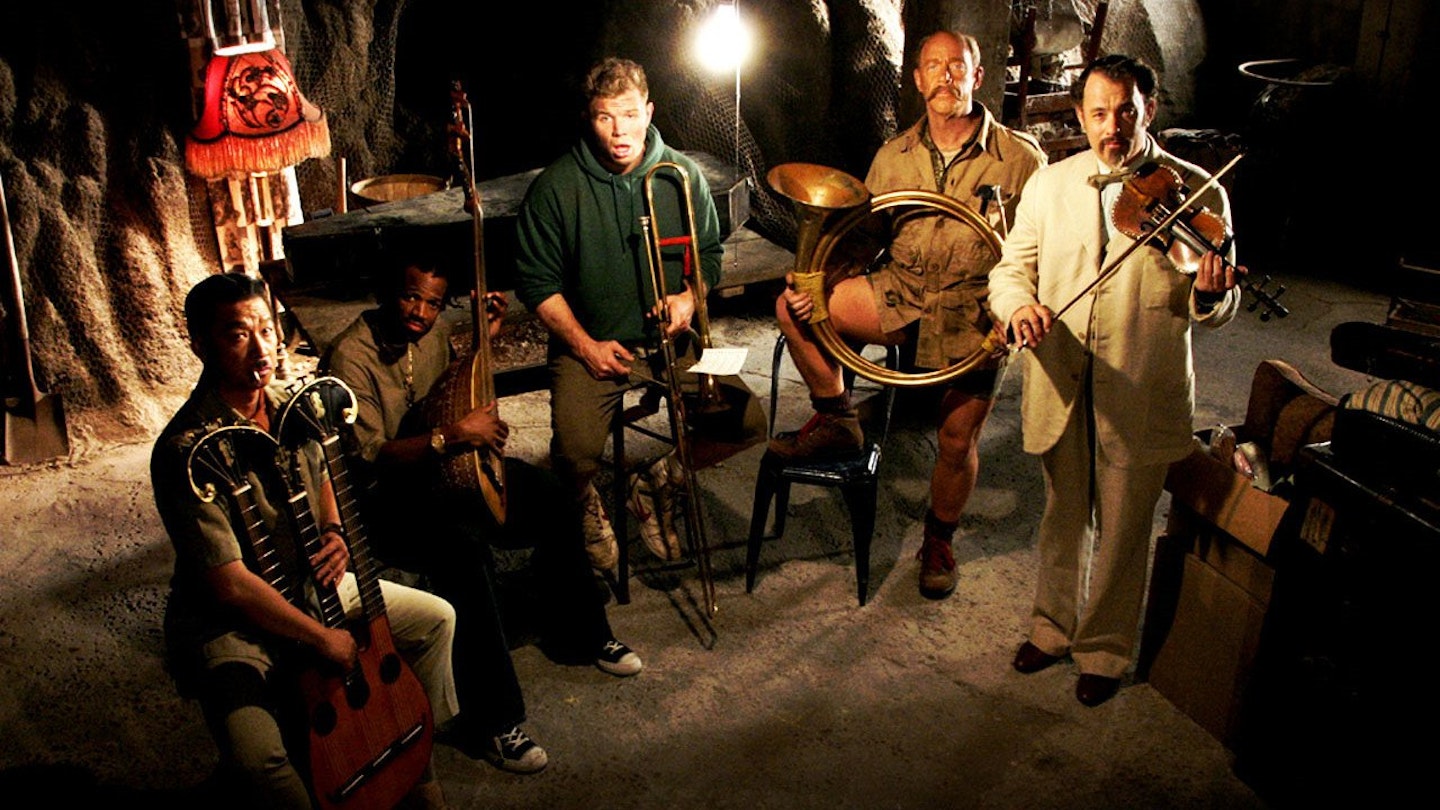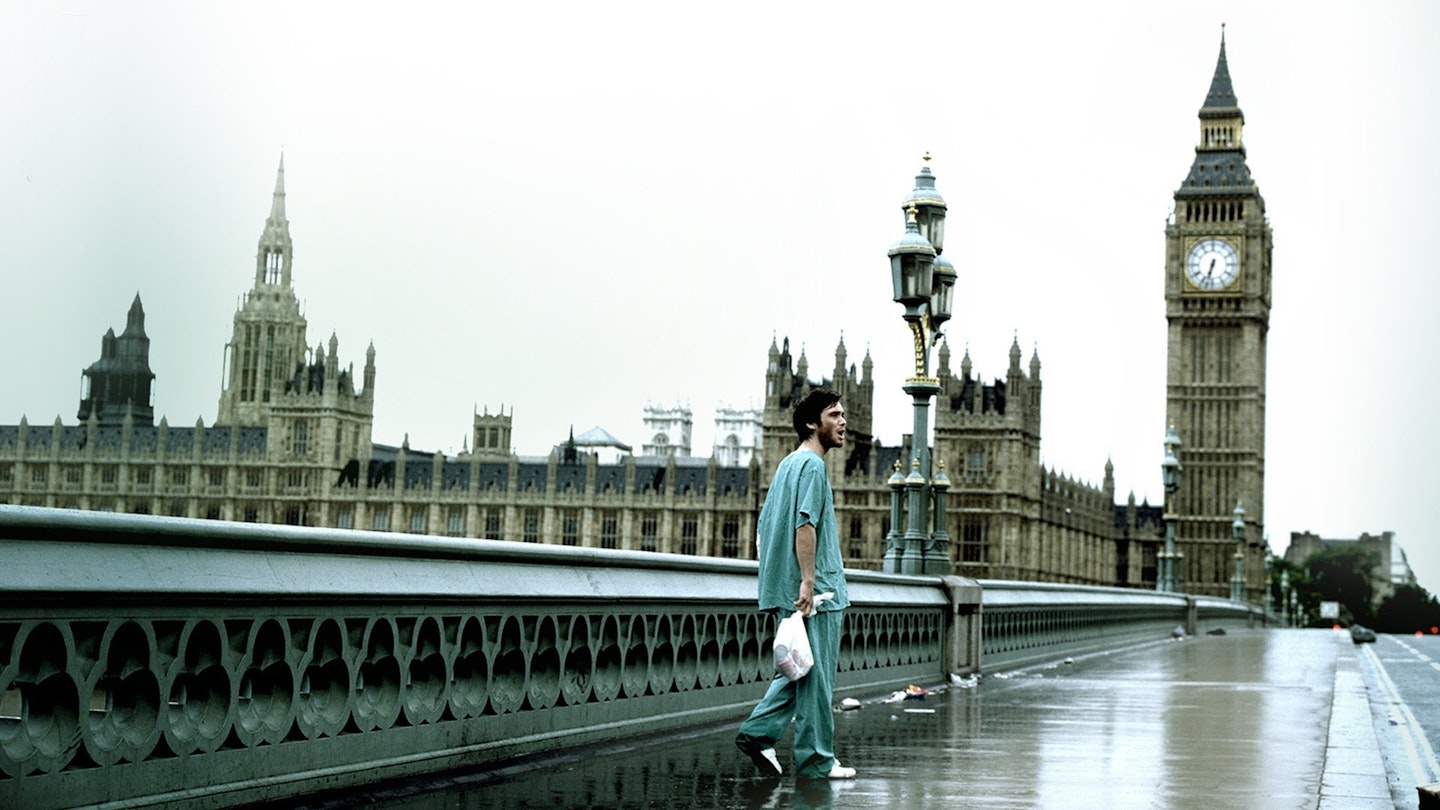Deemed one of the high-water marks in that high-tide of British filmmaking, the Ealing Comedies, this comedy manages the paradoxical brilliance of being, in equal measures, quaintly endearing and horrific. There’s something indelibly British in that — menace opposed by the fortitude of good manners.
Alexander Mackendrick, one of the more unsung of Britain’s great directing talents, adores this mix of idea and plays the contrast beautifully, just on the cusp of absurdity, the sun-struck streets of London’s King Cross painted as an almost village-like fantasy land. Into this pantomime set looms Alec Guinness, his mouth overcrowded with oversized molars, his face a-twitch with violent tics, the master criminal setting up home at twee little Katie Johnson’s lopsided house. The house, built on an unnatural tilt, is a metaphor for the confrontation that will follow between Guinness’ and his gang of goons, masquerading as classical musicians, and the smallest, sweetest, dottiest landlady in all of London town. The joke being the criminal fraternity — admittedly of pretty low calibre in this chapter— are actually the underdogs.
One of the few Ealings to be made in colour, although you seem to remember it in black and white, this is more straightforwardly a comedy than its more socially aware counterparts, but Mackendrick, with American screenwriter William Rose, has a keenness for the twisted paths of black humour. Each of the lugs will come acropper (including youthful turns from Peter Sellers and Herbert Lom), often quite violently, and their bodies will be tipped onto the coal trains figuratively steaming all the way to Hell. The Coen Brothers came acropper themselves trying to reconfigure its sly Britishness, still encamped in a postwar austerity, to the banks of the Mississippi, proving just how entwined in the local fabric these films were.

